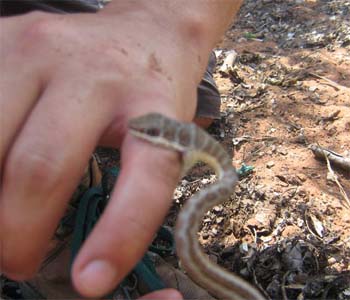Snake Bites Claim Over 3,000 Lives Every Year In WB
 Snake bites claim more than 3,000 lives each year in West Bengal owing to dearth of training among physicians and lack of alertness among patients, regardless of medicines being available free of cost in all healthcare centres as well as hospitals.
Snake bites claim more than 3,000 lives each year in West Bengal owing to dearth of training among physicians and lack of alertness among patients, regardless of medicines being available free of cost in all healthcare centres as well as hospitals.
The unawareness on the need for proper and speedy cure is taking its toll in rustic regions, researchers and health officials said.
Dayal Bandu Majumdar, a researcher on snake bites, awareness and treatment stated that in several other states, the anti snake venom serum (AVS) - the medicine needed to treat snake bite - is available for a price, but in West Bengal, the drug is available free of cost.
"But as most of the doctors and health services personnel of primary healthcare centres are not well trained to treat such cases and only refer these patients to district health centres, the loss of valuable time becomes fatal for the victims," Majumdar said.
State's Director of Health Services Aniruddha Kar concurs, but also pinpoints lack of awareness among the people as a major cause of snake bite deaths.
Time is the major factor in treating snake bite cases as the first dosage of anti-venom medication should be given within an hour of the bite.
Rabindra Nath Pradhan, superintendent, Bishnupur Hospital in Bankura district said, "We receive four to five patients every day on an average. We are able to save most of the patients. But a few of them die because of sheer unawareness as the patients visit health centres after visiting Onjhas."
About 80% of the snake bites are caused by the poisonous common krait snakes.
Different kinds of snake bites have different kinds of effect. While some affect the brain, others damage the kidneys.
Ten vials of anti-venom medicine is enough for treating average common krait bite patients and maximum 30 vials for Russell's viper bite in India.
Around 90% of snake bite cases in West Bengal occur in rural areas and suburbs. About 25,000 to 30,000 people are bitten by snakes every year, mostly during summer and rainy seasons. As most of the low-lying areas in the state get flooded during the monsoon, snake bite cases also go up during this time of the year. (With Inputs from Agencies)